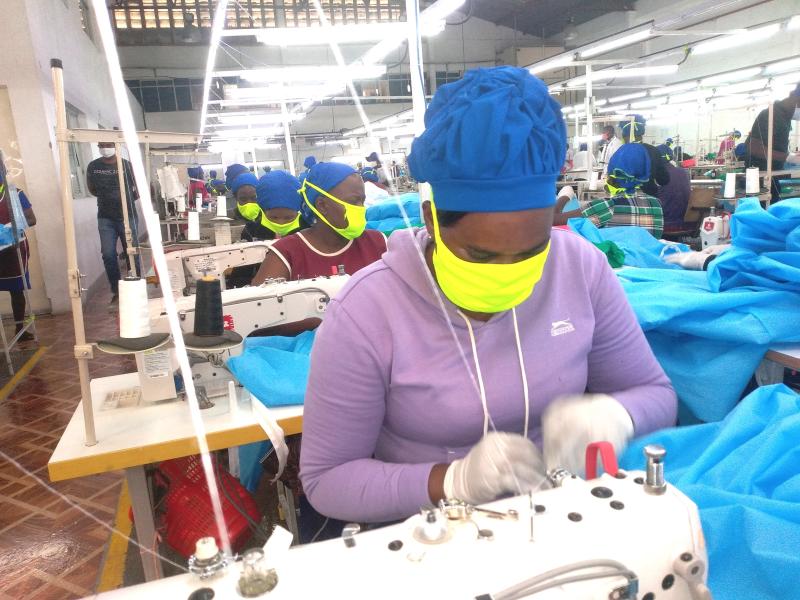Workers at the Shona Garments factory situated at Export Processing Zone in Athi River, make face masks ordered by the government following the Covid -19 outbreak. [Peterson Githaiga, Standard]
×
The Standard e-Paper
Stay Informed, Even Offline







